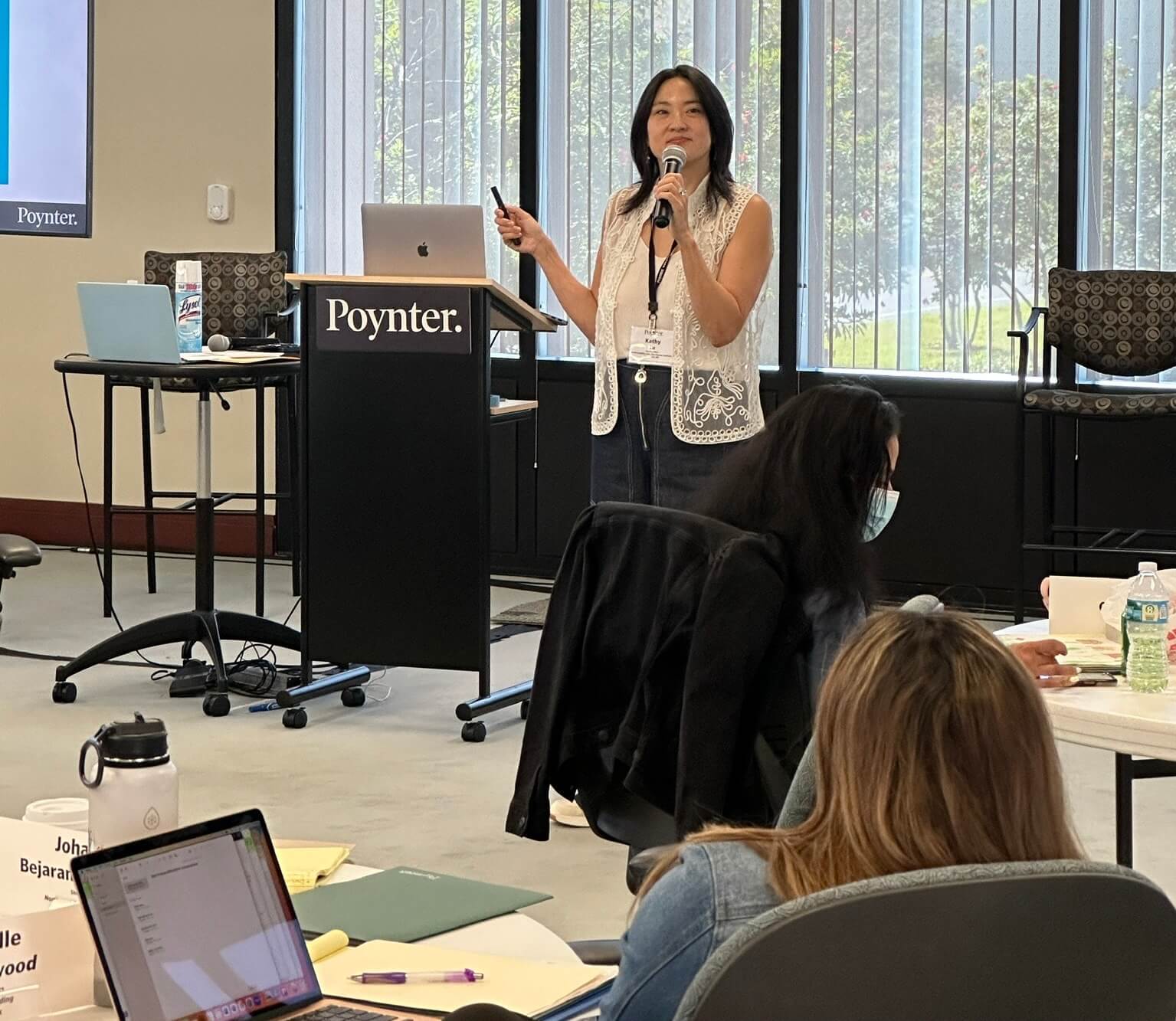As a journalism professor, Louise Kiernan often talks with her students about jobs. On Thursday, she talked with her investigative journalism class about her own new job in investigative journalism.
Kiernan, an associate professor and head of the social justice and investigative program at Medill School of Journalism at Northwestern University, was named the first editor in chief of ProPublica Illinois earlier this week.
“My students are actually really excited,” she said in an interview Thursday. “and I’m sure they are going to come knocking on the door pretty soon, too.”
Kiernan, who has taught at Medill since 2010, spent 18 years as a reporter and editor at the Chicago Tribune before that. Kiernan’s work earned her a Pulitzer Prize as part of the staff in 2001 for explanatory reporting and a Pulitzer nomination in that category the same year. She always thought she might head back into the newsroom if the right opportunity came up, Kiernan said.
And with ProPublica’s first regional newsroom, it did.
“This kind of work just feels so new and exciting and full of possibility,” she said.
Kiernan spoke with Poynter about leaving academia, the ecosystem of Chicago journalism and why she’s an optimist about the business.
What have you’ve learned going from a big legacy newsroom into a J-school?
I think the biggest thing I’ve learned from being in journalism school, and probably the most unexpected, is optimism. I am surrounded every day by these young, smart, talented, enthusiastic young people, and they are literally the future of our profession. They are the people who are gonna go out and do it, and when I spend time with them, I feel really good about what’s gonna happen. In fact, just last week, two of our recent grads both won Polk Awards for investigative journalism. I’ve been here long enough now that I’m starting to see my students go out into the world, and I’m starting to see the work that they do, and it makes me feel positive.
It’s one of the things that I really like about ProPublica. There is that same sense of optimism and energy about building something new.
Tell us about why you’re making this move, your current gig seems really cool. It’s not often I talk to journalists who lead with optimism.
I do have a really cool gig here, and I wasn’t actually looking to leave it. I’ve never wanted to be that professor who stands up in front of the room and tells a bunch of boring war stories and talks about how great things were 30 years ago when everyone was clacking on typewriters and smoking.
I always, in the back of my head, thought I’d go back into a newsroom if the right opportunity came along, but that’s pretty rare. But then this did come along, and it really was the perfect opportunity and a really rare chance. How often do you get to start something?
What will you bring with you to ProPublica Illinois?
I think because I’ve lived and worked in Chicago as a journalist for 25 years, I know the great work that’s done here and I’m also fortunate enough to know a number of the people who produce it. So I feel like I have great respect and understanding for the journalism world here, and I think that’s also something I hope to bring into the ProPublica Illinois newsroom.
How has journalism changed in Chicago during your career?
Obviously the legacy newsrooms here have faced an enormous number of challenges, and I think have continued to do remarkable work given that reality and will continue to do remarkable work.
One of the hopes I have is ProPublica can help contribute to that. One of the things that I’ve seen in particular through my experience here at Medill through helping to build the social justice nexus is there’s this thriving environment of journalism here happening in small organizations, in community outlets and with independent journalists, so part of the reason I think I am optimistic about journalism is I think there are also these elements of growth. There are these pockets of great work happening everywhere.
This is ProPublica’s first regional newsroom. How do you think it will be like ProPublica proper, and how will it be different?
I think the real answer to that question will probably play out with time because we’ll be figuring that out as we go. One of my good friends in Oak Park owns the School of Rock. What has made her business successful is the energy and vision that she and her staff have and their community and connection to the community. So I think in my ideal world, ProPublica Illinois will be a place where people work who have a great passion and connection to this region.
I know you haven’t started yet, but do you have any thoughts about where funding will come from once you’re up and running?
We are just getting started, so I don’t really have any details to offer as part of that. The social justice news nexus that we run as part of our Medill program is grant-funded on a much smaller scale, so I have some familiarity with that world.
What have you heard anecdotally about support for ProPublica Illinois?
I think there is a great hunger to support this kind of work right now, so I think it’s a really great time to be talking to people about supporting journalism.







